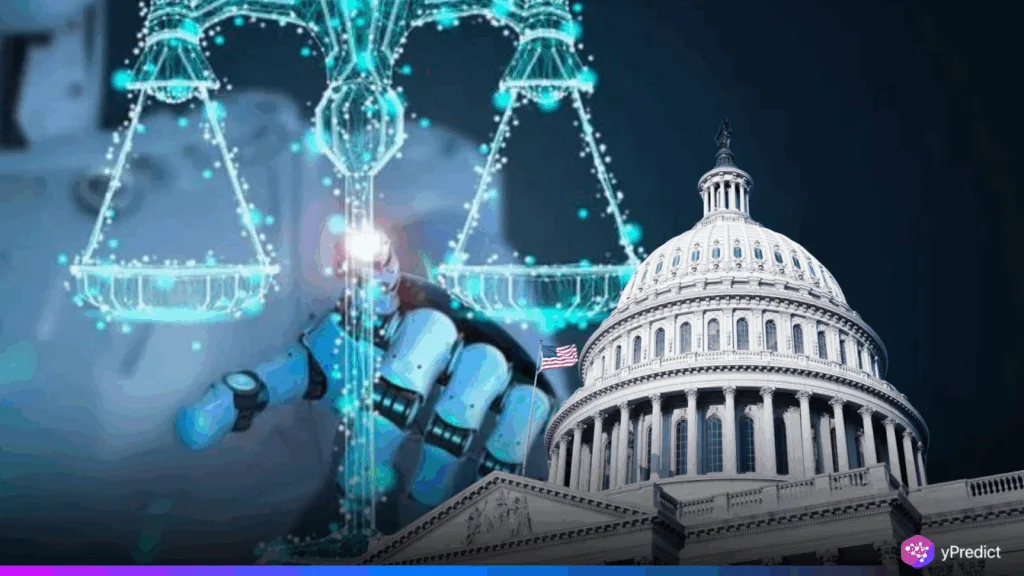
Sen. Marsha Blackburn (R-Tenn.) announced a deal with Sen. Ted Cruz (R-Texas) on a revised provision in President Trump’s tax package, temporarily blocking states from regulating artificial intelligence. The updated language sets a five-year moratorium, down from the originally proposed ten, for any state seeking access to $500 million in federal AI infrastructure funding. Blackburn, a vocal advocate for children’s online protections, secured exemptions for laws targeting deceptive practices, children’s safety, and misuse of personal likeness. While the change aims to preserve state-level safeguards, it remains uncertain whether it will address broader congressional concerns over ceding AI regulatory authority to Washington.
Federal Power vs. State Authority in AI Regulation
The revised provision in Trump’s tax bill marks a significant federal power grab over AI governance. States accepting a share of the $500 million in funding must pause their own AI regulations for five years, fueling fears that national AI policy will outpace local protections. While Blackburn secured carveouts for key state interests, such as laws addressing child safety, deepfake abuse, and online deception, the federal government retains near-total control over AI standards during the moratorium. The transaction points to an escalating rift between who gets to author the rules of one of the strongest technologies of today.
Framing the compromise as a balancing act, Cruz and Blackburn talked of facilitating national innovation without destroying the laws states had hard-earned. However, Senate critics such as Sens. Josh Hawley and Ron Johnson claim that it nonetheless threatens local democratic control and hinders the rate of prudent regulation. With the AI conquering industries ranging from education to healthcare, the struggle of the legislative agora becomes urgent. The legislator has to figure out whether standardized national treatment is better than the advantage of locally oriented experimentation. It is nothing that the AI industry heavily invests in federal lobbying, and some fear that this deal can be the beginning of larger premises of an industry-friendly, centralized control.
AI Policy at the Heart of Trump’s Legislative Agenda
President Trump’s sweeping tax and spending package has evolved into a major vehicle for AI policy, without an AI bill ever being debated on the Senate floor. The five-year preemption deal, brokered by Cruz and Blackburn, offers federal funding as both a carrot and a stick: states can either align with Washington’s timeline or forgo critical support for AI infrastructure. While the compromise is more limited than the original ten-year ban, it still preempts a decade of state legislative momentum on AI accountability. The urgency behind the provision is political as much as technological.
Trump has tied passage of the bill to his “America First” agenda, branding AI dominance as a national imperative. In this climate, lawmakers are under pressure to act fast, even at the cost of longer deliberations on AI risks and rights. Blackburn, a longtime advocate for child safety online, used her leverage to ensure exemptions for regulations that protect children and creators. But not all lawmakers are on board. The package still faces resistance from conservative hardliners like Rep. Marjorie Taylor Greene and Sen. Josh Hawley, who view the federal overreach as excessive. If passed, the bill will effectively put AI regulation into a federal holding pattern until 2030, reshaping the future of American tech policy.
AI Regulation Faces Crucial Test in Senate
The Senate is set for high-stakes votes Monday, racing to pass Trump’s tax package ahead of the July 4 deadline. At its core is the AI Infrastructure moratorium provision, now reworded but still divisive. While it cleared Senate Parliamentarian review, opposition from lawmakers like Josh Hawley and Marjorie Taylor Greene could still derail the effort. The vote won’t just decide a tax bill; it may define the next five years of AI governance. As AI rapidly reshapes everything from commerce to national security, Congress must decide whether centralized control fosters innovation or stifles the states’ ability to protect their citizens in real time.






